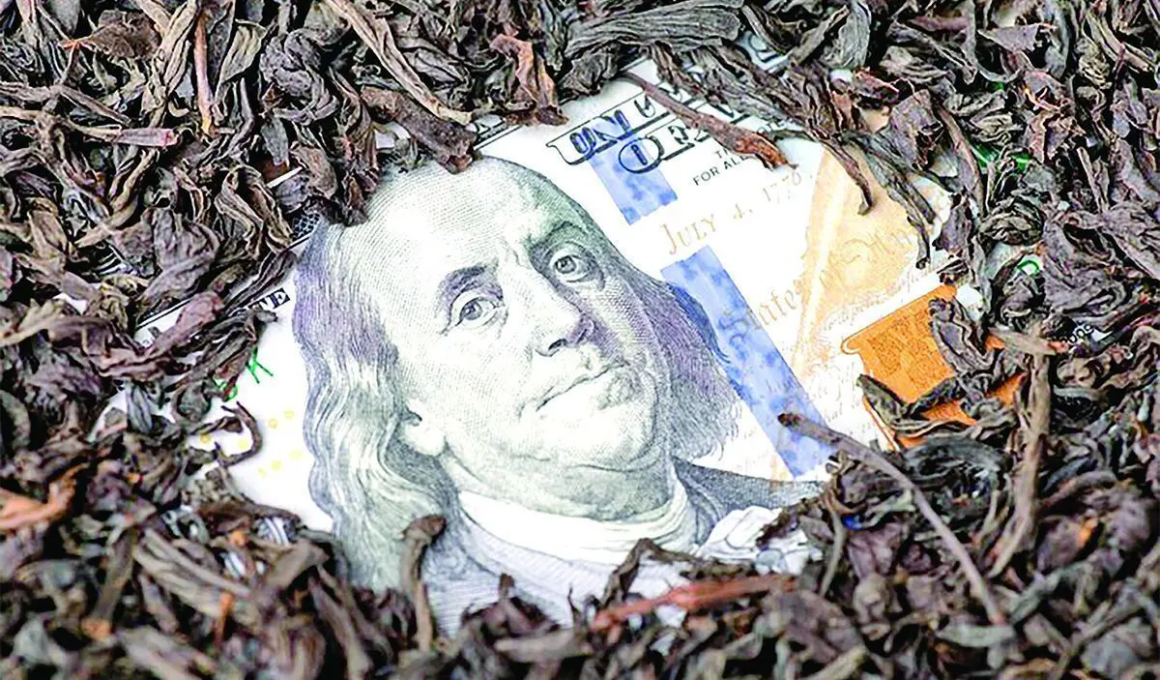These days, although the embezzlement figure of 3.5 billion dollars in the tea import project has garnered everyone’s attention as the largest financial abuse discovered in the ruling Islamic regime in Iran, voices from within the regime suggest news of much larger amounts.
While it seems that the dollars swallowed in the money laundering operation carried out under the brand of “Debsh Tea” have reached the figure of 3.5 billion over several consecutive years, now news of the disappearance of 15 billion euros from the country’s treasury, within just this past year, has been disclosed by a security figure in the system.
Ahmad Alireza Beigi, the current representative in the Islamic regime’s Majlis, holds the rank of second lieutenant in the Revolutionary Guards and is known to be close to Mahmoud Ahmadinejad. During Ahmadinejad’s government, he served as the governor of East Azerbaijan. Now, in his position as a Majlis representative, he is recognized for revealing the issue of donating luxury cars to fellow representatives.
Based on what we know about the competition between mafia-like factions within the Islamic regime, the group close to Mahmoud Ahmadinejad engages in fierce competition with other ruling factions and teams led by figures like Baqer Qalibaf, Ali Larijani, Hassan Rouhani, and part of Ebrahim Raisi’s government. Analyzing Alireza Beigi’s revelations within the framework of this competition among mafia-like factions within the power structure can be done. However, regardless of the analysis, what matters is not the reason and purpose behind these disclosures, but rather their content.
Alireza Beigi, who now, with the rejection of his qualification, lacks the possibility of participating in the elections for the Islamic Republic’s Majlis, has revealed two staggering pieces of news about billions of euros and dollars in an interview with the Etemad newspaper, the fate of which is unknown to anyone.
He stated that on July 13, 2023, the government, through an urgent bill, informed Majlis that due to the surplus revenues from the sale of oil, derivatives, gas, and other sources, they had a revenue of 15 billion euros. The government sought the parliament’s permission to allocate this 15 billion euros from oil revenue to infrastructure, settling government employee arrears, supporting pension funds, paying contractor claims, and other expenditures.
They are speaking of 15 billion euros; do you believe it?
Alireza Beigi mentioned that Majlis opposed this bill because it couldn’t allow the government to spend 15 billion dollars based on a brief and unspecified outline without specifying the location of the expenses.
However, he further claimed that in the past week, he met with the head of the Planning and Budget Organization, and the head of this organization stated that, under current conditions, we will face a budget deficit of approximately 300 to 400 billion tomans, equivalent to 9.5 billion dollars.
After expressing these two issues, Alireza Beigi states, “The question is, what happened to this 15 billion euros? Did the 15 billion euros not exist, and the government unnecessarily presented the urgent bill to Majlis? This doesn’t make sense. Or have other events occurred, not investigated, or misused? Whatever the answer, today the country is facing a deficit of at least 400 billion tomans.”
In fact, this budget deficit is approximately two and a half times the money lost in the Debsh Tea case and about five times the 15 billion euros lost. All of this has occurred in less than a year in a country where its citizens face strict limitations even for transferring their personal funds between accounts, making it impossible to conceive the movement of these figures without complete government control and supervision.
But what makes the situation even more horrifying is the second issue that Alireza Beigi has raised. He continued in this conversation, stating, “In the seventh plan and the budget for the next year, the government is supposed to have the authority to sell 1,350,000 barrels of oil per day. However, the problem arises when it comes to the mentioned 350,000 barrels. Don’t ask about that! Because it is supposed to be spent elsewhere!”
So, while until this year, all government revenues were supposed to be spent in places with at least legal authorization and apparent oversight, allowing the parliament to question their fate, now we have 15 billion euros missing and over 9 billion dollars in budget deficit. In such conditions, it is planned that approximately one-fourth of the oil income for the next year will be declared uncontrollable by default. If we calculate the daily sales income of 350,000 barrels based on the current price of Iranian oil, according to this law, in the next year, it will be over 7 billion dollars. This amount is more than twice the money lost in the Debsh Tea case, all without any supervision, control, and outside the country’s budget tables.
The burden of this volume of currency leakage from the country’s treasury and the increasing budget deficits, soon and with a weight several times these figures, will fall on the shoulders of the people. At the end of the year, facing an absolute market recession and tolerating over a 40% inflation, they must be prepared to pay higher taxes and endure much higher inflation than the current year.
The economic time bomb of the Islamic Republic is showing more dangerous signs every day, closer to an imminent explosion.







